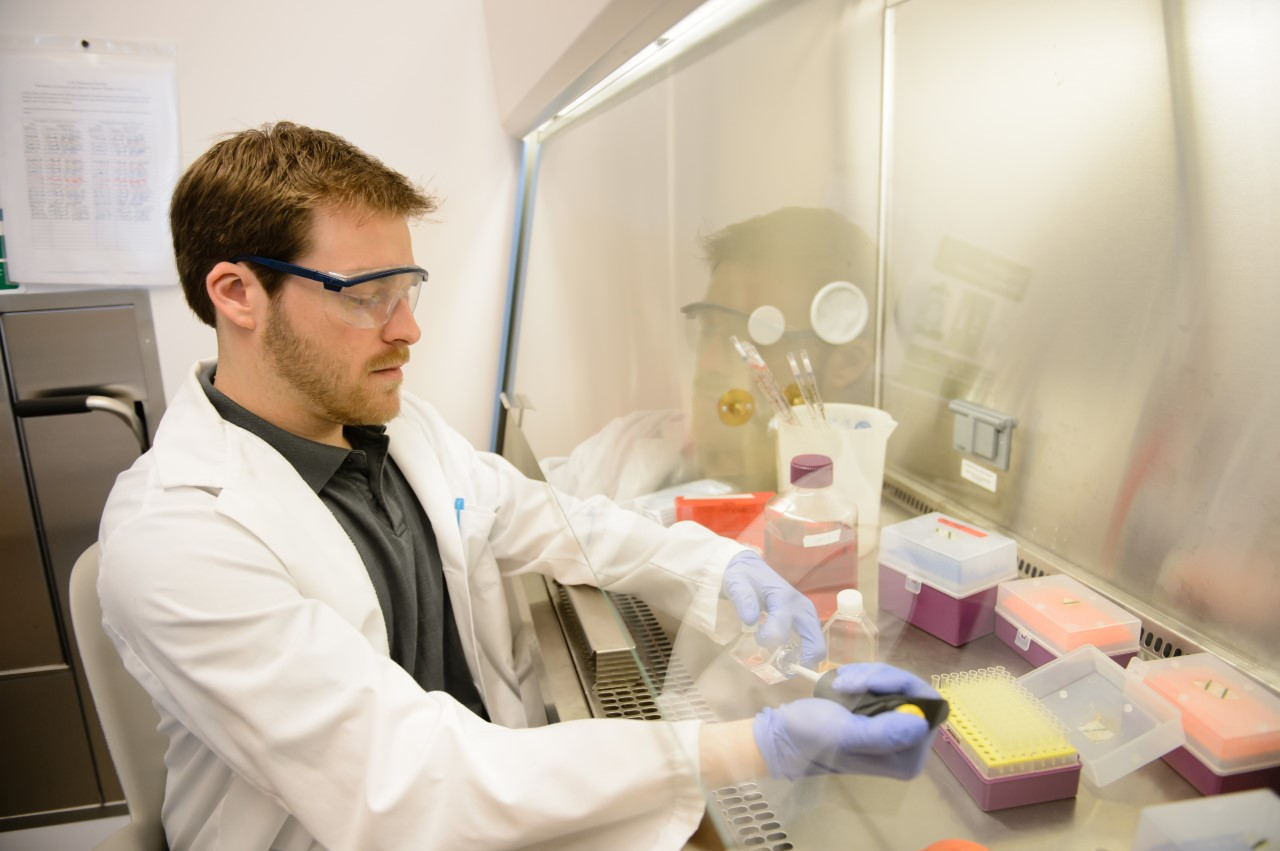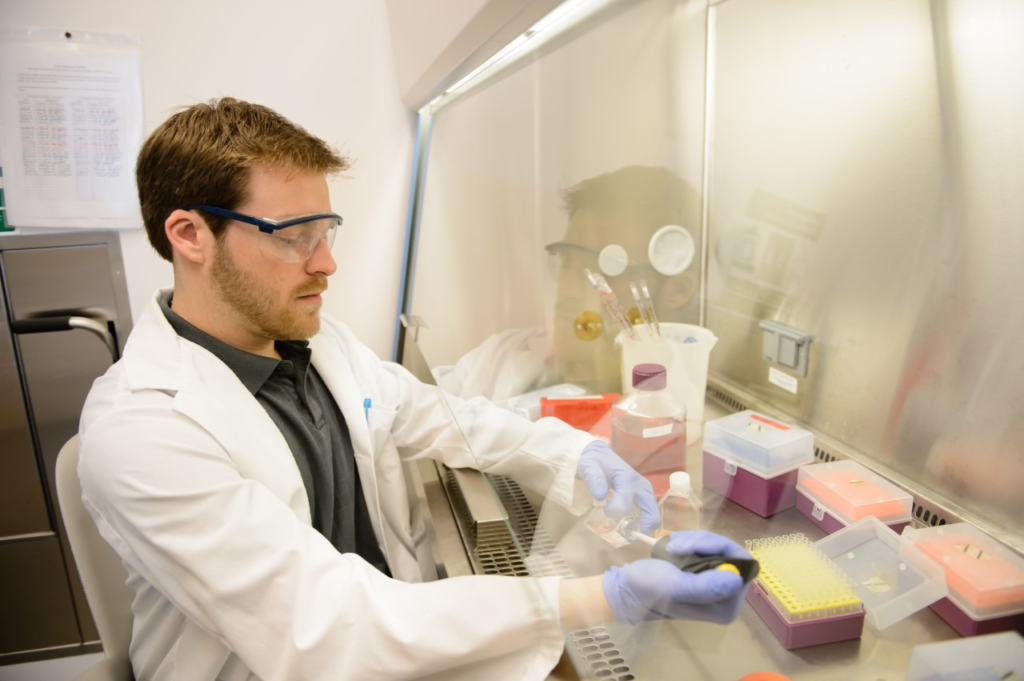Trainee Spotlight: Logan Crowe


Logan Crowe, an NIH T32 Fellow, joined the lab of Dr. Roberto Docampo as a post-doctoral trainee in September 2019. He is originally from North Carolina and obtained his bachelor’s degree in biochemistry from the University of North Carolina- Greensboro in 2014. After graduating with his bachelor’s, he began a Ph.D. program in Biochemistry and Molecular Biology at Clemson University. While at Clemson, he worked in the lab of Dr. Meredith Morris in the Eukaryotic Pathogens Innovation Center (EPIC) studying glycosome protein import and heterogeneity as well as environmental adaptation in Trypanosoma brucei. He graduated with his Ph.D. in May of 2019 and remained as a research fellow until transitioning to UGA to work in the Docampo lab.
Why did you choose UGA?
I chose UGA primarily because I wanted to continue working in parasitology and I have had several years of close contact with the CTEGD since Clemson is nearby and we attend each other’s meetings frequently. At one of the CTEGD symposiums, I had a chance to talk with a former graduate student of the Docampo lab, which led to a collaborative project. Since I had built several connections with the Center, the CTEGD and the Docampo lab was the perfect opportunity to continue studying parasitology.
What is your research focus?
I currently have two primary projects in Trypanosoma cruzi. My first project is the role of polyphosphates on the regulation of glycolytic enzymes. The lab has identified a glycosomal localization for polyP in both T. brucei and T. cruzi, and I am exploring a possible role for polyP in metabolic regulation. My second project is characterizing the mechanically-sensitive Piezo ion channels in T. cruzi which may have a role in invasion of host cells.
Do you have any advice for a student interested in this field?
My advice would be to find a lab with a mentor that puts energy into helping you grow as a scientist. Choose a mentor that invests in you and gives you a positive experience and you will be excited to go to lab and work and will be much more prepared for the next steps in whatever career path you choose.
